Let’s face facts: our world is not dedicating enough money to solving the rapid degradation of our oceans. Our society needs to bridge the estimated $150 billion funding gap to achieve effective ocean conservation. For an ecosystem that covers 70 percent of the planet and has absorbed more than 90 percent of planetary warming caused by human activity since 1970, ocean conservation has only recently entered the global public dialogue. We cannot achieve this goal without innovative business strategies and proper finance.
In collaboration with the United Nations World Oceans Day campaign, we brought together a panel to discuss Innovating Ocean Finance: Perspectives from 4 Capital Providers moderated by Gaurav Gupta, Partner, and Climate Lead at Dalberg Advisors. Our panelists ranged from promising pioneers to industry veterans. Peter Wang Hjemdahl (Co-Founder and CMO of rePurpose Global), Daniela Fernandez (CEO of Sustainable Ocean Alliance), Nicholas Kolesch VP of Projects at Alliance To End Plastic Waste, and Pawan Patil – Senior Economist at the World Bank came together to discuss their endeavors and unique strategies to end plastic waste and rejuvenate the health of our oceans.
Our panel of thought leaders explained their unique approaches and theories to reinvigorating ocean finance. They uncovered exciting trends and provided perspective on innovative and impactful business models across the value chain.
Promoting Change Through Policy and Collaboration
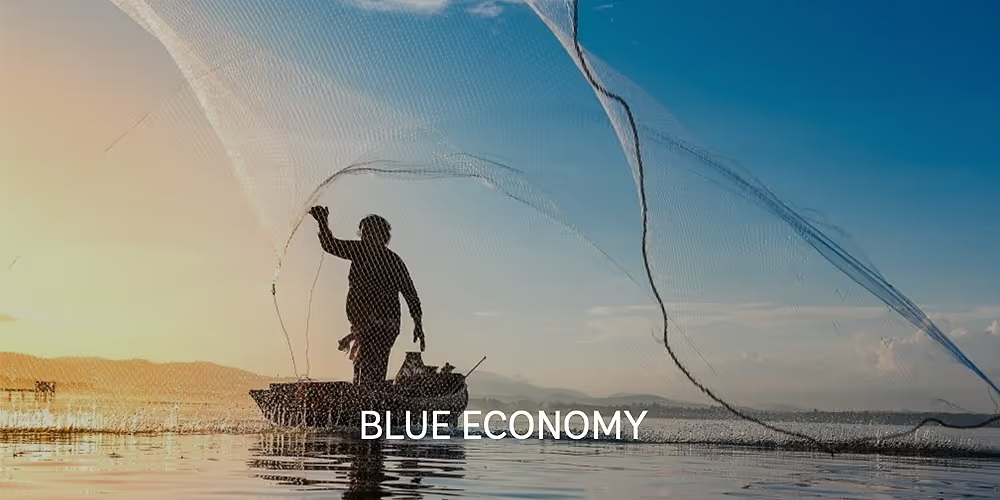
Pawan Patil is a Senior Economist who has been leading innovative project and policy development since joining the World Bank more than twenty years ago. Dr. Patil’s work contributes to the Bank’s overall oceans program, which is worth more than $5 billion in active projects. The World Bank’s Blue Economy approach is focused on the sustainable and integrated development of marine and coastal resources, so that healthy oceans can provide jobs and food, sustain economic growth, regulate the climate, and support the well-being of communities, including the poorest.
In his presentation, Dr. Patil stressed the importance of forming coalitions and partnerships “to innovate, co-create, and scale end-to-end solutions to end marine plastic pollution.” On World Oceans Day, June 8, 2020, the World Bank, Parley for the Oceans, and the South Asia Cooperative Environment Programme (SACEP) launched a first of its kind $50 million regional project to assist South Asia in curbing its marine plastic pollution. Dr. Patil also explained the role of the World Bank working together with its partners to enable and drive change. “The pieces of the puzzle are known – collaboration, sound policy, and investment.” The question, he asks, is “how to identify those pieces and fit them together to generate much-needed action on the ground.”
Connecting Impact to Finance Across the Value Chain
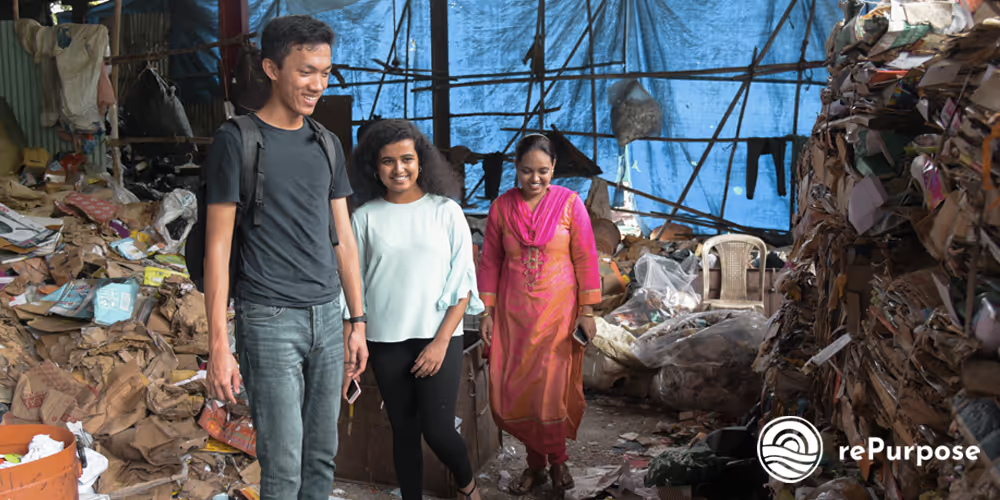
Peter Wang Hjemdahl is a Chinese-Norwegian social entrepreneur, international development strategist, and Co-Founder & CMO at rePurpose Global. He has worked as a growth strategist with social ventures across 4 continents and is passionate about developing powerful movements that systematically solve climate change. rePurpose Global is the World’s First Plastic Credit Platform helping people and companies go Plastic Neutral by financing the removal and avoidance of ocean-bound plastic waste worldwide. For every $0.50 contributed to the platform, rePurpose Global guarantees to remove 1 kg of plastic waste otherwise destined for the natural ecosystem. It accomplishes this through its Global Solutions Network of vetted recycling projects and circular innovations across 7 countries, where it deploys financing from its global coalition to catalyze and scale up their environmental impact.
Hjemdahl expressed the importance of immediate action to meet the IPCC deadline to prevent permanent damage to our climate. He explained that his platform allows companies to take rapid action to address the plastic waste epidemic and become a catalyst for change, helping bridge the $50B+ financing gap needed to achieve circular economy worldwide. He pointed out the key differentiating feature of plastic credits, especially compared to carbon credits, is their ability for individuals and businesses to fund systemic change squarely within the value chain they impact. “Financing and impact are part of one ecosystem. When a brand or individual is offsetting their plastic footprint, they are empowering the end-of-life infrastructure,” said Hjemdahl on the webinar.
The rePurpose Global Platform deploys the financing using a rigorous methodology that is underpinned by the core principle of additionality, i.e. removing or avoiding more plastic waste from the oceans than in today’s status quo. Particularly, it subsidizes the cost of recovering low-value plastic waste streams otherwise too unprofitable to be reclaimed from nature, builds new waste management infrastructure in developing countries and island-based nations, and funds the commercialization & scale-up of catalytic, early-stage innovations in the reduce, reuse, and redesign parts of the value chain.
Accelerating Action with “Active Investing”
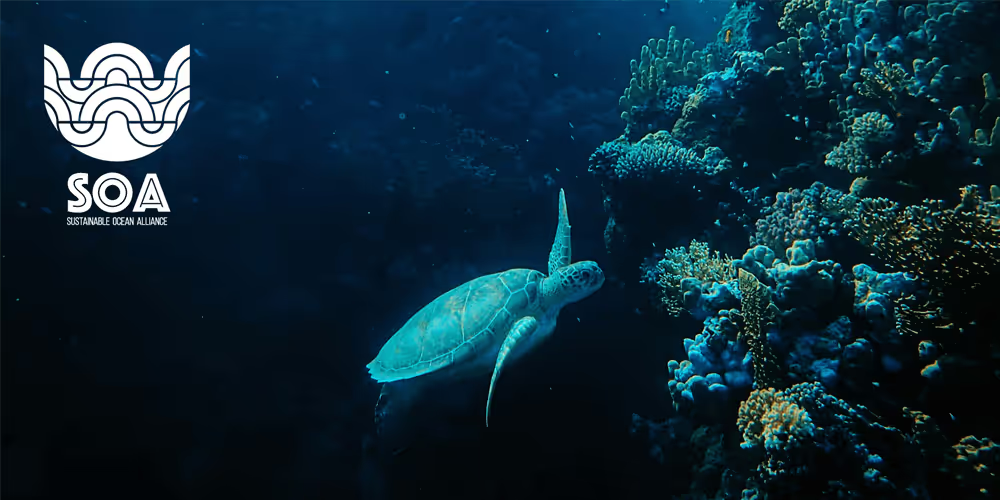
At the age of 19, Daniela Fernandez founded the Sustainable Ocean Alliance (SOA). Materializing from her studies at Georgetown University, she built SOA into an international organization cultivating and accelerating innovative solutions to protect and sustain the health of the ocean. In 2018, SOA launched the Ocean Solutions Accelerator program, which supports initiatives developing solutions for a healthy ocean. Their accelerator program provides early-stage ocean-driven enterprises with $25K investment and business mentorship to grow. SOA is now the world’s largest network of pioneering ocean leaders spanning across 185 countries. So far, they have invested in 20 ocean technology startups, proudly including rePurpose Global.
During her presentation, Fernandez stressed the importance of being an active investor. The ocean economy is still developing — to enable the most impact — investors cannot take a backseat. Fernandez explained, “these companies need a lot of support, mentorship, and guidance as we navigate to get them from an idea to a scalable opportunity we can all benefit from.” To increase support and funding for these companies, SOA recently launched Seabird Ventures. As the venture capital arm of SOA, their efforts guide companies through the critical stages of growth. SOA is an excellent example of how crucial individualized accelerator programs and venture capital initiatives are to enable companies innovating solutions for ocean health to scale.
Pursuing A Circular Economy Throughout the Value Chain
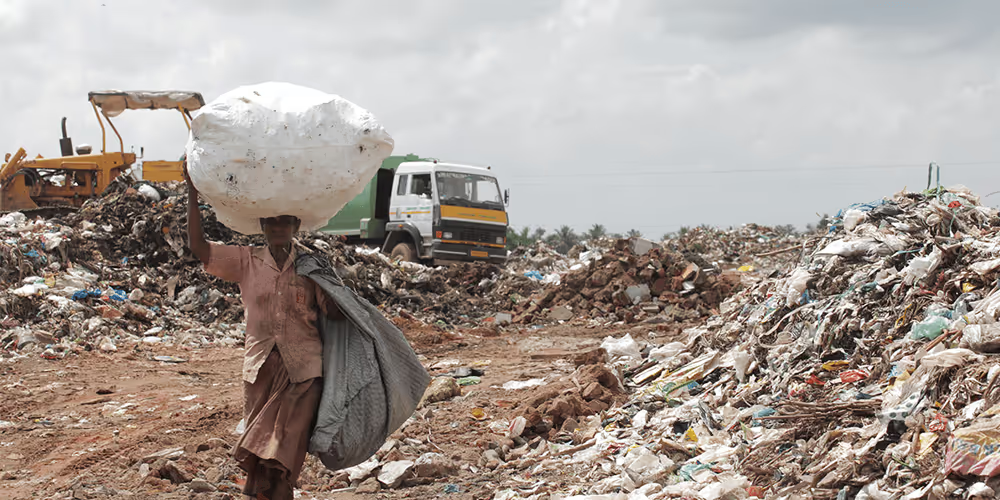
Nicholas Kolesch has twenty years of multinational experience in global marketing and strategic planning with proven B-to-B business growth expertise. His keen interest in delivering action-driven and results-oriented transformation at the frontline to eliminate plastic waste brought him to the Alliance to End Plastic Waste. The Alliance to End Plastic Waste is a globally coordinated not-for-profit organization, made up of over 40 major companies in the plastics value chain, committed to investing $1.5 billion over the next five years to fund and incubate projects and programs that will recover and create value from plastic waste. Ultimately, we aim to de-risk investments and unlock new capital from private investors, as well as multilateral development banks and the public sector.
Kolesch’s presentation stressed the importance of innovating across the entire value chain to create lasting and effective methods to end plastic waste. Product design is a crucial facet to improve the reuse and recyclability of plastic. Kolesch explained that “If you can have a mono-material solution, that can help tremendously enable recycling because you don’t have a product made up of several different polymers.“ Kolesch’s observation explains the downside of multi-layered plastics and how they are much more challenging to recycle. When product design takes a circular approach and considers the entire lifecycle of a product, solutions to plastic waste become much more tangible. The Alliance to End Plastic Waste helps support ideas to achieve a circular economy by operating in four strategic areas: infrastructure, innovation, education, and clean up. This strategic approach empowers communities and drives plastic waste management to the next level.
Evaluating the Ocean Economy with Impact Metrics
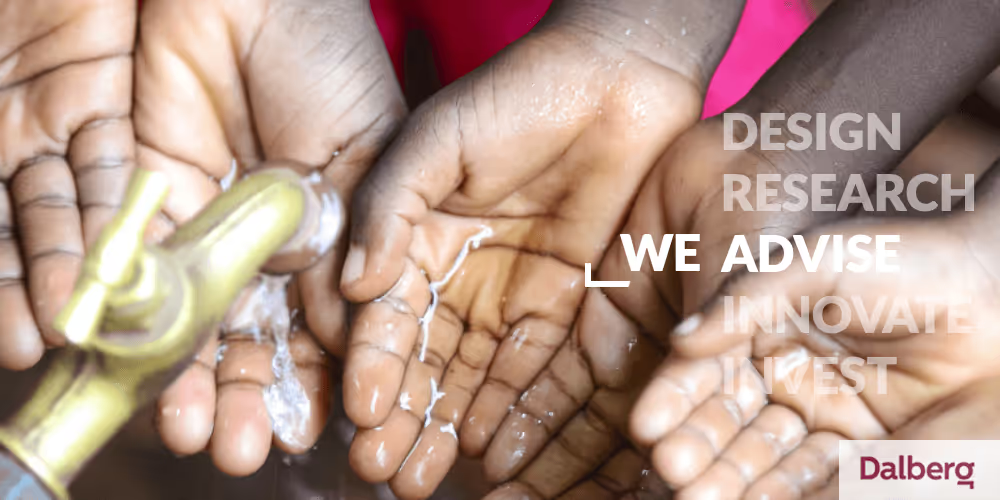
The moderator, Gaurav Gupta, Partner, and Climate Lead at Dalberg Advisors, and advisor to several fortune 500 companies on clean energy transition, expertly led the affair. Gupta is also a serial social entrepreneur who has founded an eco-tourism lodge, an organic cotton fashion business, sustainability-focused online travel-portal, and an organic tea and wildlife estate. His organization, Dalberg, is a global change-maker that prioritizes innovation through social impact advisory. Dalberg commits to action by working alongside their clients to innovate and design impact strategies that catalyze social change and economic inclusivity.
Gupta began the webinar discussion with a few introductory statistics regarding the ocean economy. He explained that recent reports from the WWF estimated that the assets comprising the ocean economy total $24 trillion, and “the ocean economy is set to grow at twice the rate of the mainstream economy.” He explained that as ocean finance evolves, verifying project impact is essential. Gupta highlighted a downside of impact finance is a lack of impact measurement. “Climate is able to turn everything into a CO2 equivalent,” and he rhetorically asked, “do we need a carbon equivalent for marine ecosystems?” Can one measurement be an all-inclusive metric to define the social impact performance of investments?
There are other questions Gupta raised that still need answers to allow ocean finance to evolve effectively. A vital query is discovering where the most attractive return on investment lies in ocean economics from a social or financial performance standpoint. Considering how countless livelihoods depend on the oceans, these trends can help safeguard millions. Additionally, discovering the most profitable sectors of ocean finance can help open the doors to mainstream investment.
Coming together and discussing change has created an essential starting point to commit to action. Our Ocean Economy is vital for our continued success; now is the time to take action to protect our oceans and the millions of lives they support. Uniting innovative perspectives celebrates our commonalities and forges collaboration. Let’s do our part to protect the world’s 7th largest economy and the vital life force of our planet!


.avif)
.avif)

.avif)






